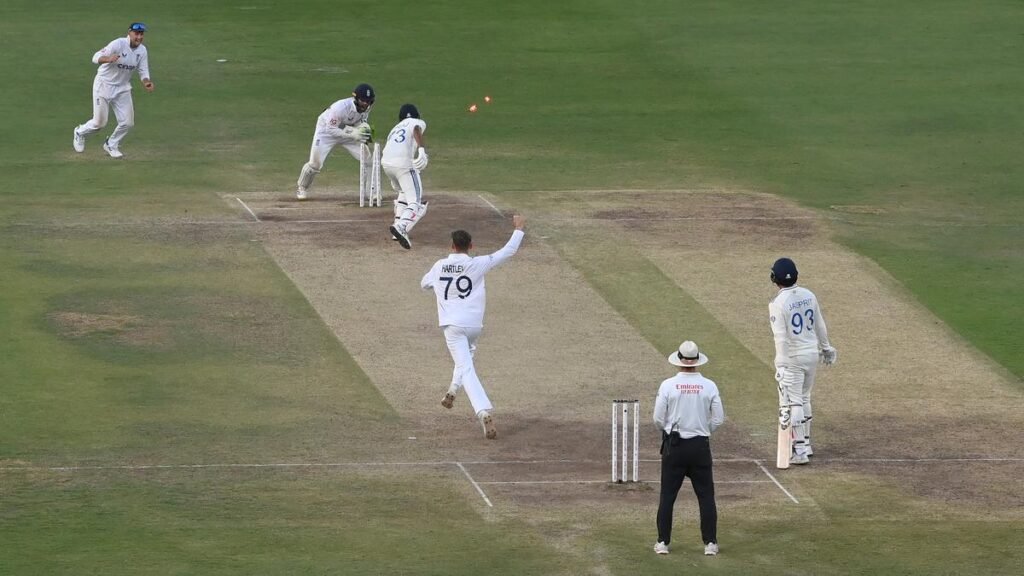Despite being 9450 kilometers apart, Brisbane and Hyderabad found themselves twinned in cricketing significance on Sunday as hope defied the odds.
Australia had not lost to the West Indies at home in 27 years. However, a 24-year-old, Joseph Shamar, in only his second Test, dismantled them with seven wickets. Similarly, another 24-year-old, Tom Hartley, in his debut match, also claimed seven wickets, propelling India to only their fourth defeat at home in 11 years.
If that wasn’t remarkable enough, in Melbourne, a 22-year-old staged a comeback from two sets down to clinch the Australian Open title, although Jannick Sinner’s victory was less surprising. Nonetheless, it made for a captivating afternoon of underdog triumphs.
Sport thrives on unpredictability. The unexpected moments are what fans cherish the most.
Vintage Windies
This resembled the West Indies of yesteryears, unmistakably relishing the game and radiating that joy. Kevin Sinclair’s cartwheel-somersault celebration upon taking a wicket was a unique spectacle — has anyone else ever attempted such a feat? The pace bowling was formidable, the fielding sharp, and ultimately, the eagerness to rally around their hero, who, despite being struck by a yorker on his toe the previous day, had not planned to take the field at all.
And then there were the backstories — because what is sport without its narratives? Shamar, hailing from the remote village of Baracara with a population of just 350, located two days away by boat from New Amsterdam. He started his journey by felling and chopping logs before moving to the city, where he worked as a laborer and security guard for 12 hours a day. Despite being part of a team that had played far fewer Tests than Australia, he made an unforgettable debut by claiming Steve Smith’s wicket with his very first ball and went on to be named Player of the Series.
Meanwhile, in another corner of the world, Hartley, the son of a European 400m champion, faced a challenging start to his Test career. His first ball was smashed for six, leading many to doubt his capabilities except for his captain. Ben Stokes persisted with him, bowling him for 25 overs in the first innings, despite leaking 131 runs, leaving everyone questioning the decision.
Fear of failure
Bazball transcends merely scoring runs consistently. It’s also about nurturing your team members. It’s about selflessly playing for the collective, exemplified by Ollie Pope when he was on 196 and the last man came in. Instead of playing cautiously for four overs to secure his double century with a single off the last ball, he attempted a reverse scoop against Jasprit Bumrah and was bowled out. Bazball isn’t solely about providing entertainment; it’s about the strength of unity. As Stokes continually stresses, Bazball is about eradicating the fear of failure.
The fear of failure was palpable in India’s chase. Their top order had squandered their wickets in the first innings by playing aggressive shots. Consequently, they became overly cautious and self-conscious during the chase. In a brilliant analysis by espncricinfo statistician Rajesh, it was highlighted that Indians actually played fewer loose shots than England. However, England capitalized more on the deliveries they controlled. Bazball also involves getting your calculations spot on.
India lacked a designated hitter who could potentially have altered the game in just three or four overs. Presumably, Axar Patel was promoted with that strategy in mind. However, he succumbed to the prevailing defensiveness. India played it safe, while England displayed a greater tolerance, if not a welcoming attitude, towards risk.
If fortune favors the bold, it tends to abandon the timid, which is what happened to India.
Critics of England’s decision to train in Abu Dhabi, despite the expected spin-friendly wickets in India, missed the true purpose: batters were honing one specific stroke — the sweep, both orthodox and reverse. Ollie Pope epitomized this shift; he batted in the first innings like a deer caught in headlights. However, in the second innings, after scoring about 20 runs, he seemed to thaw out and let his training take over.
India lacked a batsman who would take on the spinners, someone like Rishabh Pant, known for his astute risk assessment. Yashasvi Jaiswal failed to adjust to the changing conditions and the adaptability of the bowlers in the second innings.
However, he will learn from this experience, just as the Indian team will. Despite not clinching the win, we were treated to one of the great Test matches.
This victory belonged to England, inspired by their captain, whose on-field decisions were occasionally perplexing. However, sometimes, tactics take a backseat to qualities like compassion and self-belief, as Stokes once again demonstrated during his 14th win in 19 matches.
